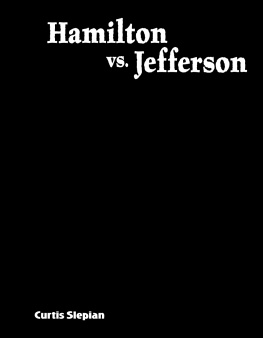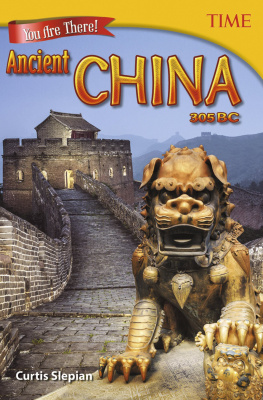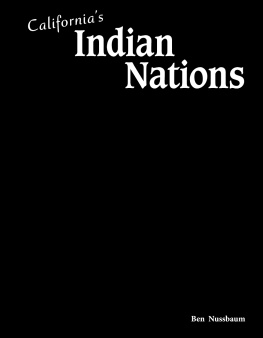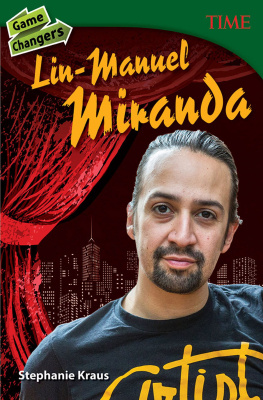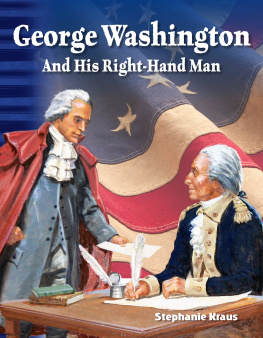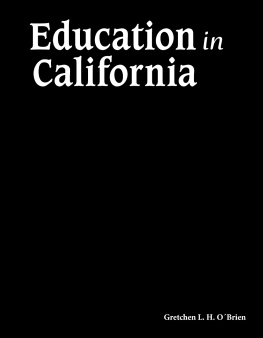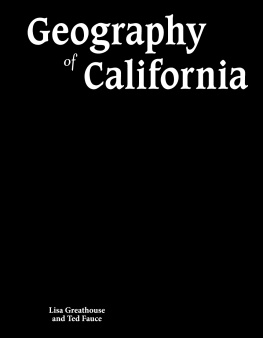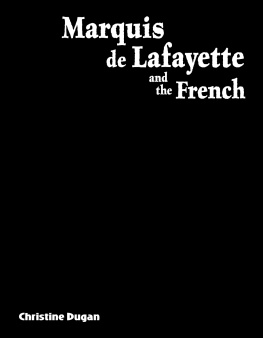Curtis Slepian - Hamilton vs. Jefferson
Here you can read online Curtis Slepian - Hamilton vs. Jefferson full text of the book (entire story) in english for free. Download pdf and epub, get meaning, cover and reviews about this ebook. year: 2017, publisher: Teacher Created Materials, genre: History. Description of the work, (preface) as well as reviews are available. Best literature library LitArk.com created for fans of good reading and offers a wide selection of genres:
Romance novel
Science fiction
Adventure
Detective
Science
History
Home and family
Prose
Art
Politics
Computer
Non-fiction
Religion
Business
Children
Humor
Choose a favorite category and find really read worthwhile books. Enjoy immersion in the world of imagination, feel the emotions of the characters or learn something new for yourself, make an fascinating discovery.
- Book:Hamilton vs. Jefferson
- Author:
- Publisher:Teacher Created Materials
- Genre:
- Year:2017
- Rating:3 / 5
- Favourites:Add to favourites
- Your mark:
- 60
- 1
- 2
- 3
- 4
- 5
Hamilton vs. Jefferson: summary, description and annotation
We offer to read an annotation, description, summary or preface (depends on what the author of the book "Hamilton vs. Jefferson" wrote himself). If you haven't found the necessary information about the book — write in the comments, we will try to find it.
Hamilton vs. Jefferson — read online for free the complete book (whole text) full work
Below is the text of the book, divided by pages. System saving the place of the last page read, allows you to conveniently read the book "Hamilton vs. Jefferson" online for free, without having to search again every time where you left off. Put a bookmark, and you can go to the page where you finished reading at any time.
Font size:
Interval:
Bookmark:
0covercover.xhtmlHamilton vs. Jefferson Curtis Slepiancover3page0003page0003.xhtml44page0004page0004.xhtmlTable of Contents A Tale of Two Men 4 Two Worlds 6 Government 12 Money Matters 18 Global Concerns 24 Glossary 30 Index 31 Your Turn! 3255page0005page0005.xhtmlA Tale of Two Men Thomas Jefferson left a great mark on American history . He served as the third president . He also wrote the Declaration of Independence . His profound words about democracy are still repeated and admired . The work that Alexander Hamilton did for his country is also impressive . He created a financial system that is still being used . He pushed for a strong central government backed by a strong military . His efforts helped to shape the world that Americans live in today . Alexander Hamilton Thomas Jefferson66page0006page0006.xhtmlBoth men were among the most influential Founding Fathers. But, they almost never agreed. These two men had one of the biggest political rivalries in history . We know that they didnt get along, but what was it that each man stood for? Benjamin Franklin, John Adams, and Jefferson meet to review a draft of the Declaration of Independence. Face Time The Treasury Department was planning to replace Hamilton on the $10 bill. Lin-Manuel Mirandas Hamilton : An American Musical changed that! Hamiltons face will stay on the bill. Harriet Tubman is expected to appear on the $20 bill instead. Lasting Legacy Jeffersons greatest legacy is certainly the Declaration of Independence. We hold these truths to be self-evident, that all men are created equal, that they are endowed by their Creator with certain unalienable Rights, that among these are Life, Liberty and the pursuit of Happiness. These words are the cornerstone on which the United States was built.77page0007page0007.xhtmlTwo Worlds Not only did Jefferson and Hamilton hold different opinions, but they also lived different kinds of lives . Jefferson was a rich man and lived at Monticello a huge house that he designed . Not only was he a famous Founding Father, he was also a philosopher, scientist, inventor, and architect . Displayed inside the house are gadgets Jefferson invented and many objects he collected . Two of these objects stand out : busts of Jefferson and Hamilton . They face each other in the entrance hall . Jefferson said the two heads would be opposed in death as in life . The Federalist Papers Copy Cat One of Jeffersons favorite gadgets was a copying machine. When he wrote a letter, another pen would duplicate his hand movements. This created a second copy of his letter, which he filed away. Jefferson did not invent the machine, but he did give suggestions to the inventor on how to improve its design. He Wrote the Guidebook One of Hamiltons longest-lasting written pieces was a ship-to-ship communication guide. He wrote it in 1790 for the United States Revenue Cutter Service. That group would later become the Coast Guard. The guide was used until 1962.88page0008page0008.xhtmlUnlike Jefferson, Hamilton was never a rich man . As secretary of the treasury, he earned $3, 500 a year . As a lawyer, he often charged less than he could have . Hamilton had a taste for the finer things in life, but he never had the wealth to back it up . This led to a mountain of debt . Hamilton spent most of his free time writing . He wrote a lot, and he wrote quickly . His most famous work appeared in The Federalist Papers . These were 85 essays in support of the Constitution . Hamilton wrote 51 of the essays, as many as six of them in one week . Monticellos entrance hall has many artifacts from Jeffersons life.99page0009page0009.xhtmlHome Sweet Home Most of Jeffersons fortune was spent building and furnishing his grand house . He most likely spent more than $100, 000 building it . That amount of money would be equal to millions of dollars today . Jefferson owed money when he died, but his legacy is rich . His life and words still move people . Half a million people visit Monticello each year . Hamiltons two-story wooden home, called The Grange, is located in New York City . Built in 1802, the house is much smaller and more modest than Monticello . By the time The Grange was finished, Hamilton was deep in debt . In fact, his wife, Eliza, had to sell the house not long after Hamiltons death to pay off debts . Soon after, she bought the house back and lived in it until 1833 . In 1962, The Grange became part of the National Park Service . It is now a national memorial with an exciting history of its own . The Grange1010page0010page0010.xhtmlMonticello Sweet Tooth A favorite treat at Monticello was ice cream. Sixty-two wagons full of the dessert were gathered in winter and stored in an icehouse. Its thought that Jefferson wrote the first American recipe for this cool treat. On the Move The Grange has been picked up and moved twice. It was first moved in 1889 to avoid being torn down due to street construction. As the city grew around it, The Grange was squeezed between a church and an apartment building. It sat neglected and overlooked. In 2008, the building was restored, picked up, and moved to nearby St. Nicholas Park.1111page0011page0011.xhtmlOn the Farm Jefferson was a country boy, a Virginian . In those days, the United States was mostly an agricultural society . Jefferson wanted it to stay that way . He believed that farming was the natural way of life . People tied to the land kept alive that sacred fire of personal liberty . He believed that cities, on the other hand, were places of corruption . They were full of merchants who only cared about money . He called cities great sores . A farmer and his family harvesting in colonial America Child Labor Hamilton said that if young children worked in factories, it would make them more useful. This may sound bad in todays world, but he thought it would give kids a chance to earn money and help their families. He worked as a clerk when he was a teenager, and it was the most useful of his education. Shared Idea On a trip to Europe, Jefferson noticed that the plows being used could be improved. When he got home, he designed a plow that was much more efficient. He chose not to patent the idea so that other farmers could use it for free.1212page0012page0012.xhtmlAll Business Hamilton was a city boy, a New Yorker . He didnt think cities were sores . In fact, he was sure they made the country healthier . Cities were centers of commerce and manufacturing . Businesses created and spread wealth . They attracted workers from other countries to America . Even farmers benefited from cities . They could sell crops there and buy cheap goods . Commerce made people energetic and inventive . A nation that grows things, makes things, and sells things is stronger than a country that doesnt do all three . In the long run, Hamiltons vision came true : Americas economy became based more on industry than agriculture . A busy New York City street before Washingtons inauguration at Federal Hall.1313page0013page0013.xhtmlGovernment In 1789, George Washington became president . He chose Hamilton as secretary of the treasury . Jefferson became secretary of state . It wasnt long before Hamilton and Jefferson began to clash . This is when the real rivalry between the two men began . Hamilton wanted a strong central government . He thought it would be better for the nation . A loose collection of states almost lost the Revolution . They couldnt even collect taxes to pay their army . Hamilton wanted to expand the powers of the federal government . It should have the power to collect taxes, create an army, make treaties, and enforce laws . He was in favor of a powerful leader who would rule for life . He also believed decisions should be made by landholders, merchants, and men of experience . He believed the common people seldom judge or determine right . This statue of Hamilton is in front of the Treasury Building.1414page0014page0014.xhtmlJefferson thought that Hamiltons ideas would lead to a monarchy . Hamiltons ideal leader was too powerful . The position would be the same as a king . States would not have a fair say in matters that affect them . Jefferson thought states should control their own fates . He believed that government should not trust a few people to represent the views of the whole country . The debate over the balance of state and federal powers continues today . Washington and his cabinet : Henry Knox, Hamilton, Jefferson, and Edmund Randolph 1786 Rebellion Ex-soldiers of the Revolution who wanted back pay started an uprising called Shays Rebellion. Hamilton was against any attack on the national government. But Jefferson approved of the rebellion. He once wrote, The tree of liberty must be refreshed from time to time with the blood of patriots and tyrants. It is its natural manure. Striking a Balance Hamilton believed that once leaders were elected into office, they should be allowed to serve during good behavior. This meant that there would be no limit to the amount of time that they could be in office. James Madison called this an elective monarchy. 1515page0015page0015.xhtmlThe Issue of Slavery On many issues, Hamilton and Jefferson were like night and day . One major example of this was slavery . Jefferson owned about 200 enslaved people . But he said he opposed slavery . He thought it was immoral and hurt the Southern economy . Yet Jefferson never tried to end slavery . He didnt want to lose support of Southern slaveholders . There was also fear that if slaves were freed, war would follow . His solution? At some point in the future, he thought they should ship any freed enslaved people out of the country .1616page0016page0016.xhtmlHamilton grew up in the West Indies . He witnessed slaverys brutality firsthand . He believed in abolishing slavery . During the Revolutionary War, Hamilton wanted enslaved people to fight the British . In exchange, they would be freed . Later, Hamilton helped start an anti-slavery group . He criticized people who hold the bill of rights in one hand and a whip for affrighted slaves in the other . He meant slaveholders like Jefferson . They talked about protecting the rights of people, but they didnt think that those rights should apply to everybody . Tools such as the wheel-driven lathe (left) and the two-man saw (above) were used during Monticello's construction. Slaveholding Founders Many Founding Fathers owned slaves. This includes Jefferson, Washington, Patrick Henry, and James Madison. Washington wrote in his will that his slaves were to be freed upon his wifes death and left them money. Jefferson freed only a handful of his slaves. Unliberated Hamilton helped found the New-York Society for Promoting the Manumission [freeing] of Slaves and Protecting of Such of Them as Have Been or May Be Liberated. Surprisingly, some of the members of this group actually owned slaves. Hamilton tried to get those members to free their slaves, but they wouldnt.1717page0017page0017.xhtmlPolitical Parties Other politicians began to choose sides between Hamilton and Jefferson . Hamiltons followers were called Federalists . They were in favor of a strong central government . Jefferson led a group called the Democratic-Republicans . They preferred a government where the states held most of the power . The two parties clashed as much as their leaders . Choosing a Home In 1790, people began talking about the permanent capital of the United States . At the time, New York City was the home of the president and Congress . Most people thought it would stay there . They were even planning to build a new mansion for President Washington to live in . Hamilton loved having the capital in his hometown, but it wasnt everybodys top choice . Jefferson didnt want the capital to stay in New York . It was too far from the South . A capital too far north would be more likely to reflect northern ideals . Jefferson proposed that the capital move to Virginia, along the Potomac River . Washington put it up to a vote . Whichever location got the most votes would be the new capital . It looked like a majority of the politicians would vote for New York City . Jefferson was going to need help to get his way .1818page0018page0018.xhtmlChatterbox Hamiltons wordy nature got on Jeffersons nerves. After one cabinet meeting, Jefferson wrote a note that said, Hamilton made a jury speech of three quarters of an hour. The next day, after another meeting, Jefferson wrote, Met again. Hamilton spoke again of an hour. Roaming Capital The United States capital has actually been moved among nine different cities. Most of the moves took place during the Revolutionary War. The capital had to move to stay safe from the British Army.1919page0019page0019.xhtmlMoney Matters Some of the biggest battles that Hamilton and Jefferson fought were over money . Hamilton was in charge of the treasury . He had big plans to strengthen the economy of the United States . But Jefferson thought that some of his ideas tested the limits of Hamiltons power . Round one was over debts . The United States owed a lot of money because of the Revolutionary War . Hamilton believed the federal government should assume the states debts . That would help the country build credit . This was called the Assumption Bill . Jefferson thought the plan was unfair . Some states had already paid what they owed . Why should those states have to help pay for the states that still owed money? As it turned out, most of the states that had already paid off their debts were in the South . So, Jefferson had an idea . continental currency Printing Money Part of the reason why the Revolutionary War was fought was because the British imposed unfair taxes. Congress didnt want to anger the public by doing the same thing, so it decided to print more money to pay off the debt. This led to big problems later on. Behind a Door The Compromise of 1790 is also known as the Dinner Table Bargain. Many people were upset that only three men made a decision that affected the entire country.2020page0020page0020.xhtmlJefferson invited Hamilton to dinner at his house . He also invited James Madison . Madison was a Democratic-Republican from Virginia who opposed Hamiltons debt plan . While they were there, the three men came up with a compromise . Madison and Jefferson would support Hamiltons debt plan . In return, Hamilton would support Jeffersons idea to move the U . S . capital to Virginia . Round one was a tie . Assumption Bill2121page0021page0021.xhtmlBank on It Round two was fought over whether to create a national bank . Hamilton believed that a common bank with branches in each state would help the nations economy . At the time, there was no national currency . Most people just traded goods and services . The nation couldnt collect taxes fairly without a standard of value . A bank that existed in all the states could create that . It would also be a place where the federal government could deposit its money or get loans . On the other hand, Jefferson did not like the idea of a national bank . He argued that the Constitution doesnt mention a national bank, so it would be illegal . This was a strict reading of the Constitution . Hamilton used a loose reading . He claimed the Constitution gives the government powers not directly mentioned . The Constitution says the government can regulate commerce . A national bank is needed to do that . Washington sided with Hamilton, and a national bank was formed . This round went to Hamilton . First Bank of the United States2222page0022page0022.xhtmlLouisiana Purchase Treaty High Price to Pay Jefferson did all he could to stop the national bank. He even tried to punish any banker in Virginia who had anything to do with a central bank. Jefferson said that they would be guilty of high treason and suffer death accordingly by the judgment of the state courts. Buying Power Jefferson didnt always practice what he preached when it came to interpreting the Constitution. In 1803, he purchased the Louisiana Territory from France. There was nothing in the Constitution that gave him the power to buy land. But, he did it anyway.2323page0023page0023.xhtmlAn Unpopular Law... Jefferson and Hamilton continued to disagree on almost every decision they made . In 1791, Hamilton needed to find a way to pay off the debts that the United States owed from the Revolutionary War . He decided to place a tax on whiskey . Whiskey-makers believed the tax would mostly affect small farmers . The farmers would often make whiskey with their leftover crops . This helped them make extra money . The tax felt unfair to them . For three years, protests remained peaceful . Then things turned violent . Five thousand angry rebels prepared to march on Pittsburgh . They believed that the new tax was no better than Great Britains old taxes . Something needed to be done . Washington and his troops before the Whiskey Rebellion Tar-Nation Angry whiskey-makers sometimes tarred and feathered tax collectors. They rubbed hot pine over victims and stuck feathers on them. It was painful and humiliating but not deadly. Pardon Me When the Whiskey Rebellion ended, 24 men were put on trial for high treason. This is a crime punishable by death. All except two men were found not guilty. President Washington later pardoned the two men who were convicted.2424page0024page0024.xhtmlHamilton helped lead over 13, 000 troops to suppress what became known as the Whiskey Rebellion . He said even unpopular laws must be obeyed . Shall the majority govern or be governed? Shall there be government or no government? At first, Jefferson said nothing about the tax . It was part of the deal he had made with Hamilton over dinner the year before . Later, he called the whiskey tax infernal . He also thought it was wrong to use American troops against their own people . The tax was not repealed until 1802, when Jefferson was president . Daniel Morgan commanded troops that stopped the rebellion.2525page0025page0025.xhtmlGlobal Concerns The French Revolution split France . On one side, you had the king and the noble class who helped America win its freedom . On the other side were the lower-class citizens who fought for democracy . This made it hard for Americans to choose a side to defend . They decided that it would be best to remain neutral . Then, in 1793 France went to war against Great Britain . This made it even harder for Americans to decide where they stood . Rivals at War Jefferson always thought highly of France . He thought even more of them after the French Revolution . It swept out the king and brought democracy to the country . Jefferson hated kings . Great Britain was a monarchy and a former enemy . Hamilton had once told Jefferson that Britain is the most perfect government which ever existed . The thought of the United States as a monarchy scared Jefferson . The French Revolution was a violent time for France.2626page0026page0026.xhtmlHamilton was pro-Britain . Its government was stable, and its economy was strong . Great Britain was Americas main trading partner . It was in the best interests of the United States not to anger them . To Hamilton, the French Revolution was the bigger threat . Some freedom fighters threatened to take the revolution beyond France . If its violence spread to America, their new government could be thrown out as violently as Frances had . Thomas Jefferson was an ambassador to France. The French Ask for Help Edward Charles Genet was a French ambassador sent to the United States to create anti-British sentiment. He was trying to gain support for the French Revolution. His goal was to find a base from which privateers could attack British ships. However, Washington wanted to stay out of the war and denied Genet any help. Vive La France! Jefferson loved all things French. Many parts of Monticello have a distinct French influence. For example, the dome on the top of Jeffersons famous home is modeled after the Hotel de Salm. This was a palace in France that he particularly liked.2727page0027page0027.xhtmlChoosing Sides The British upset Americans by placing tariffs and trade restrictions on their goods . Matters got worse when the British captured U . S . ships that were sailing to French ports . Democratic-Republicans wanted to fight Britain . Hamilton tried to avoid conflict . In 1794, he helped work out a deal called the Jay Treaty . The treaty kept America out of war . It also limited their trade rights and made them repay pre-revolutionary debts . Jefferson said it was a monument to folly . He believed Hamilton gave up too much to the British in an attempt to avoid war . Speechless France was also upset about the Jay Treaty and began to capture U . S . ships in 1798 . President John Adams was ready to fight . Talk of war with France scared Democratic-Republicans . They attacked the government in the newspapers . The Federalists decided to keep their rivals quiet . They passed the Sedition Act in 1798 . The act made it illegal to write, print, or publish anything opposing the U . S . government . Jefferson tried to get states to overturn the act . He said the law went against freedom of speech . Hamilton argued that states could not overturn a federal law . The Sedition Act stuck . Rock Bottom When Hamilton spoke publicly in favor of the Jay Treaty in New York City, some members of the crowd threw rocks at him. One stone hit him in the head. Hamilton joked with the mob, If you use such knock-down arguments, I must retire. Taking Freedom The Sedition Act was one of four acts passed by the Federalists in 1798 that became known as the Alien and Sedition Acts. They were used to suppress the freedoms of Americans who didnt agree with government. These acts turned out to be the downfall of Adamss presidency.2828page0028page0028.xhtmlAlien and Sedition Acts2929page0029page0029.xhtmlCutting Losses When Jefferson ran for president in 1796, Hamilton worked against his election . He helped John Adams win . It wasnt a complete loss for Jefferson, though he became vice president . Jefferson ran for president again in 1800 . This time he beat Adams but tied with Aaron Burr . Hamilton had feuded with Burr more than he had with Jefferson . He called Burr One of the most unprincipled men in the United States . At least Jefferson had principles . It was up to the House of Representatives to decide the winner . Hamilton talked House members into voting for Jefferson . This document shows the tally of electoral votes for the 1800 presidential election.3030page0030page0030.xhtmlRivals at Rest Jefferson and Hamilton were both passionate about the new country . They fought for what they believed in . The election of 1800 proved that these men could put aside personal differences for the sake of the country . Both men believed in the promise of the United States and wanted it to succeed . It wasnt one man or the other who the country took after . Reflections of both men can be seen in the country today . Both men set a young country on the path to greatness . Thomas Jefferson Faint Praise In a dig at Burr, Hamilton (sort of) praised Burrs opponent, Jefferson. There is no doubt that upon every virtuous and prudent calculation, Jefferson is to be preferred. He is by far not so dangerous a man. Handing Over the Keys The election of 1800 marked the first transfer of political power in U. S. history. People were afraid that this would lead to war. Luckily, it turned out to be a peaceful transition. Jefferson called for peace in his inaugural speech. He said, We are all Republicans, we are all Federalists. 3131page0031page0031.xhtmlGlossary abolishing formally putting an end to agricultural related to farming or raising livestock commerce the buying and selling of goods in a country or between countries corruption not doing what is moral or considered correct in society debt something that is owed Founding Fathers the people who were most involved in creating the United States immoral not good or right industry businesses that work in manufacturing legacy anything handed down from the past to future generations monarchy a government headed by a single person, such as a king neutral not taking one side or the other in a conflict patent protect with a trademark to establish ownership rights privateers private citizens given permission by a government to attack foreign ships profound having deep meaning or insight prudent showing thoughtfulness rivalries competitions; disagreements secretary of state a member of the presidents cabinet who gives advice on foreign policy secretary of the treasury a member of the presidents cabinet who gives advice on the nations financial matters standard of value an agreed upon value for goods and services based on a common unit of exchange (such as a dollar) suppress to forcibly stop something from happening tariffs taxes taxes the money a government collects from citizens and businesses to help run the government virtuous making good moral decisions3232page0032page0032.xhtmlIndex Adams, John, agriculture, Alien and Sedition Acts, Burr, Aaron, Constitution, debt, Democratic-Republicans, Federalist Papers, The, Federalists, Founding Fathers, France, French Revolution, Grange, The, Great Britain, Henry, Patrick, Jay Treaty, Knox, Henry, Louisiana Purchase, Madison, James, Miranda, Lin-Manuel, Monticello, national bank, New York City, Randolph, Edmund, Revolutionary War, Shay's Rebellion, slavery, taxes, Virginia, Washington, George, Whiskey Rebellion,3333page0033page0033.xhtmlYour Turn! Look closely at the continental currency . Also look at some current bills . What features or symbols do you find on currency today? What makes the colonial currency different from the currency of today? Take elements from the colonial money and from todays currency to design a new look for American money . Provide an explanation of the elements that you include and why you chose them . Create at least three different bills .3434page0034page0034.xhtmlRead and Respond 1. How did the backgrounds of Hamilton and Jefferson affect the way each viewed slavery? 2. Why was Jefferson worried by Hamiltons admiration of Great Britain? 3. Whose ideas about government do you agree with more : Hamiltons or Jeffersons? Why? 4. For what reasons does Hamilton deserve to stay on the $10 bill?3535page0035page0035.xhtmlHamilton vs. Jefferson Thomas Jefferson and Alexander Hamilton are two of Americas most influential Founding Fathers. They both fought for Americas independence. And, they also developed the foundation on which the countrys government is based. However, Hamilton and Jefferson were two very different men. They led different lives, had different ideas, and couldnt agree on anything! Their rivalry continued throughout their lives, but they managed to come together when the greater good of the country was at stake.36
Next pageFont size:
Interval:
Bookmark:
Similar books «Hamilton vs. Jefferson»
Look at similar books to Hamilton vs. Jefferson. We have selected literature similar in name and meaning in the hope of providing readers with more options to find new, interesting, not yet read works.
Discussion, reviews of the book Hamilton vs. Jefferson and just readers' own opinions. Leave your comments, write what you think about the work, its meaning or the main characters. Specify what exactly you liked and what you didn't like, and why you think so.

